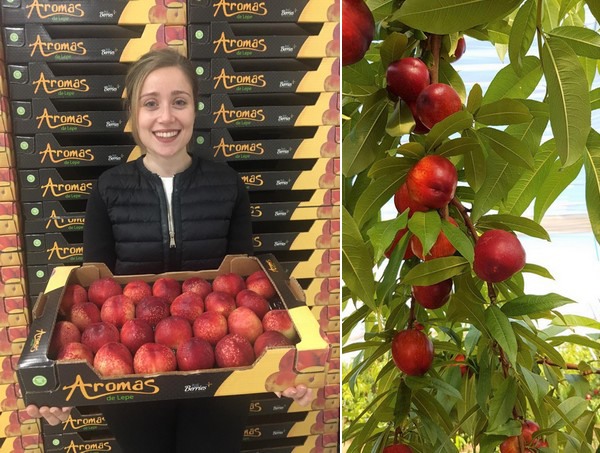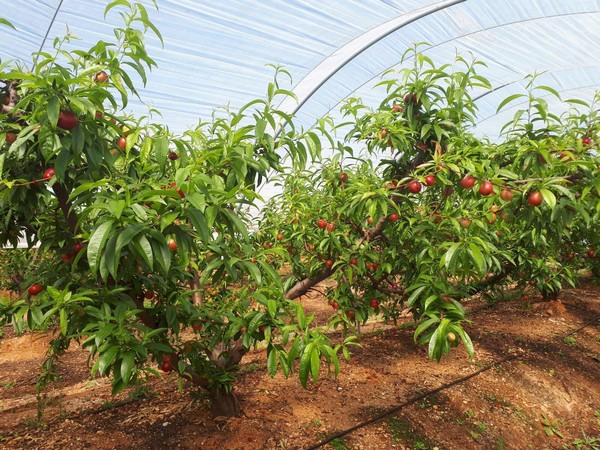The harvest of the first Spanish protected-cultivation nectarines started two weeks in advance in Huelva. In the coming weeks, peaches, apricots, plums, and doughnut peaches will also be harvested.

Victoria Martin, Marketing Manager at PlusBerries.
“Yesterday, March 23, we started collecting the first white flesh nectarines. This is the second year that the stone fruit campaign has started so early, a year that we could compare with 2016 when the harvest started on March 21. In the coming weeks, we will continue with yellow flesh nectarines and peaches. We have had a fairly warm winter, with around 200 hours of cold and a good flowering that has allowed all the fruit to set well. We are very happy with the quality,” stated Victoria Martin, Marketing Manager at Agromartin, of the Plus Berries group, a specialist in strawberry and stone fruit.
The Huelva-based company has around 200 hectares of greenhouses dedicated to the production of extra-early stone fruit and 700 hectares of medium and late varieties.
The first pallets will be shipped to wholesale markets in Europe and the company expects to start supplying their retail customers next week when they have a continuous supply. However, the coronavirus crisis has created a lot of uncertainty at the beginning of the campaign, since Europe has become the epicenter of the pandemic.

"Despite having good yields, calibers, Brix degrees, and flavor this campaign, we don't know how the markets will react. In many European countries, including Spain, greengrocers, food stores, central markets, hotels, and restaurants are closed or have very limited hours; depending on the policies of each country, which change every day. Sales in the wholesale markets have suffered a lot and it seems that they will continue to do so. Purchases in supermarkets could decrease if the containment measures are increased,” said Victoria Martin.
“Europe has been the main destination for our fruit and continues to be our preference. However, we might need to find other markets that absorb our offer with guarantees, such as the United Arab Emirates or Hong Kong. We are confident that this year's good harvest and the good weather in Europe will spark the interest of European consumers, as stone fruit has a longer shelf life than other products and is different from what we have been consuming all winter,” she stated.
For this campaign, Plus Berries expects to collect some 15 million kilos of stone fruit, 5 million of them in April and May and 10 million kilos from June to September. From April to October, the company works with its own fruit. In the remainder of the year, it imports fruit from South Africa to maintain a continuous supply to those customers who want to have stone fruit throughout the year.
For more information:
Victoria Martín
PlusBerries
M: 0034 673109821
T: 0034 959504454
victoriamartin@plusberries.com
www.plusberries.com
www.agromartin.com
